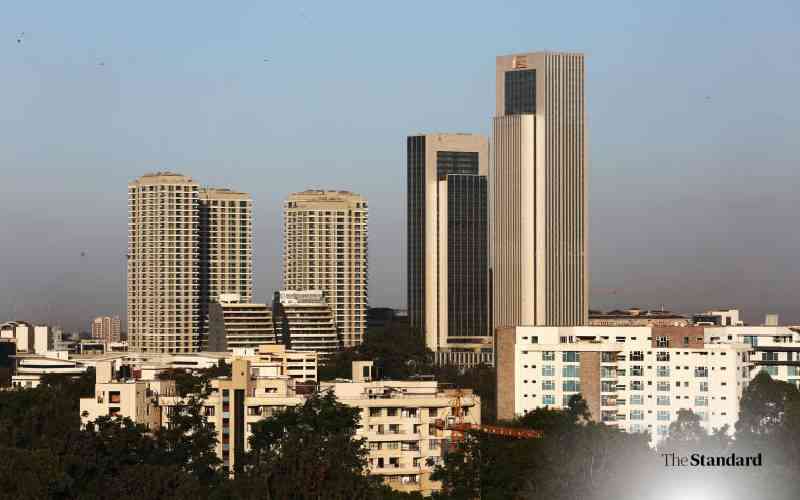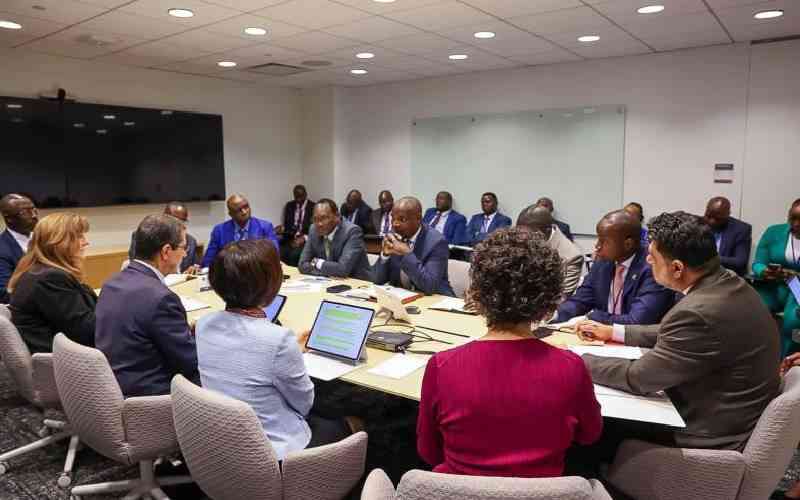
Thousands of public schools across the country still do not have land ownership documents, leaving them vulnerable to grabbers and constant legal battles.
Further, the lack of title deeds hinders any meaningful development hence denying students a conducive learning environment.
A 2023 report by Shule Yangu Campaign Alliance revealed that 4,100 schools had formally reported being at risk of losing their properties in the absence of land ownership documents.
The report pointed that only 11,974 of Kenya’s 32,643 public schools have received title deeds, a mere 37 per cent.
In January 2015 retired President Uhuru Kenyatta ordered the issuance of title deeds to all public primary and secondary schools.
However, the hope for schools to obtain the crucial documents remains a pipe dream. School heads say the majority of schools are not adequately protected, exposing learners to drug peddlers and sex pests.
“We cannot fence the school for lack of legal documents of ownership. This has led to people freely passing through the school, the situation is posing danger to our learners,” said a head teacher in Nairobi who did not wish to be named.
The sentiments were echoed by Makadara MP George Aladwa.
“For thousands of students across the country, the battle for their schoolland is not just a legal matter; it is a fight for their future. Without security over their learning spaces, their education, safety, and well-being are compromised,” said Aladwa.
Last year, Education Cabinet Secretary Julius Ogamba, directed regional and county directors of education to conduct audits of all school lands and secure title deeds where none exist.
"It’s our responsibility to safeguard these properties. We will work with the Ministry of Lands to ensure that all government institutions, including schools, secure their titles to prevent encroachment," said Ogamba.
Despite the government’s efforts, land grabbing continues to be a pervasive issue in learning institutions.
Nairobi carries the burden of schools whose land risks being hived off by grabbers, with 26 institutions both primary and secondary facing encroachment.
Garden Estate Secondary School in Roysambu constituency built in 2014 using CDF funds is one example.
Stay informed. Subscribe to our newsletter
The school cost the taxpayer over Sh70 million on land shared by Garden Estate Primary School legally allocated in 1966. The land was allocated to three private developers who claim seven acres of the property.
A teacher at the school said the fight for land has been relentless.
“What these people have in mind is cashing in. If you look at the boundaries, others are permanent, but ours is temporary. Someone is waiting for the right moment to take it,” he lamented.
In 2017, Garden Estate Secondary won a court case affirming its ownership, but the threat has not disappeared.
“Someone, somewhere wants to put the government in an awkward position to see the school evicted,” added the teacher.
Highway Secondary School in Makadara, Lavington Girls Secondary School in Dagoretti North, and Buruburu Girls are among other institutions embroiled in land disputes.
Private developers have constructed residential houses on their land, posing a danger to students and teachers.
"Recently, a group of intruders arrived, claiming to have ownership of the land. They had no documents, no legal backing, and yet they were trying to forcefully remove teachers from the staff quarters,” said Irungu Nduati, Principal of Highway Secondary School.
St. Catherine’s Primary School in South B has already lost nearly eight acres. In 2015, parents and students marched to the office of then Lands CS Charity Ngilu, demanding justice.
According to Willie Kuria, Kenya Secondary Schools Heads Association (KESSHA) chairman, lack of documentation makes it easy for unscrupulous developers to forge ownership papers.
“We provided data on all schools two years ago but there is no feedback on this. We need to be told what happened,” Kuria said.
His Kenya Primary Schools Heads Association (KEPSHA) counterpart Johnston Nzioka said schools face threats, with developers often attempting to forcefully seize the land, backed by forged documents and dubious claims.
“Most of our primary schools have been sponsored by religious organisations which have the titles. They are not willing to let them go and be under the custody of the Cabinet Secretary for National Treasury as is required now. This has slowed down the process of getting titles,” explained Nzioka.
Another scenario that brings confusion is where churches share the same compound with schools.
“They come in on Sundays or anytime they have meetings making it difficult to control drug and external exposure to our learners,” a head teacher complained.
Lands Cabinet Secretary Alice Wahome has assured that the government is in the process of creating regional teams to specifically address the issue of land grabbing affecting schools.
"We’ve seen numerous cases where land meant for schools is illegally grabbed. This is not just an issue of land; it’s about protecting our children's education,” she said.
She called on school leaders and local communities to act swiftly by preparing and submitting documentation for their properties to Ardhi House.
“Every principal, headteacher, and community member must ensure they document their school’s land and bring it to the Ministry’s attention for action,” she directed.
Ruiru MP Simon King’ara, who sponsored the Public Land Amendment Bill in 2018 to fast-track school land registration, expresses frustration over the slow pace of implementation.
“My Bill became law, yet schools remain at risk. Even after providing the government with data two years ago, we have received no feedback,” said King’ara.
Beatrice Elachi, a Dagoretti North MP has called on the government to move with speed and salvage the situation.
“I would sincerely beg the government to protect school property from land grabbers. It is inconceivable that someone would walk into a school and decide to put up a structure," she said.
Data from the National Land Commission (NLC) reveals that each school in Kenya holds an average of five to seven acres of land. A senior NLC official attributes the crisis to a lack of a coherent public land policy.
“All land records are with the Ministry of Lands, while maps are with the Survey of Kenya. NLC was sidelined, creating a disjointed system that benefits corrupt officials and cartels,” he said.
While urban schools face aggressive land speculation, rural schools grapple with unique challenges.
In Kwale County, the excavation of an eight-acre portion of Mwamdudu Primary School’s land resulted in injuries among students, with some suffering broken limbs.
“The trauma these children go through is unimaginable. They should be focusing on their studies, not on whether they have a school to attend tomorrow,” says a teacher at the school who requested anonymity.
Out of Kenya’s 47 counties, some regions have made significant progress, while others remain completely unprotected. In North Eastern, Mandera County has successfully processed title deeds for 321 out of its 334 schools.
However, all 256 schools in Garissa, 311 in Wajir, and 231 in Marsabit still lack titles. The situation is equally dire in Turkana (473), Samburu (215), and Tana River (300), where not a single public school has been titled.






